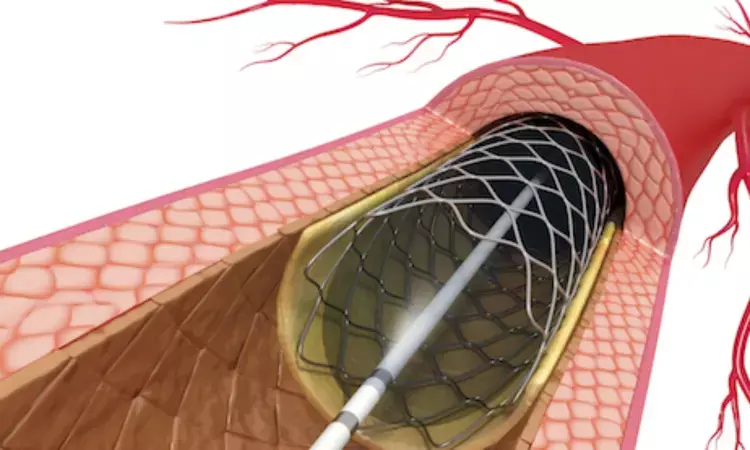- Home
- Medical news & Guidelines
- Anesthesiology
- Cardiology and CTVS
- Critical Care
- Dentistry
- Dermatology
- Diabetes and Endocrinology
- ENT
- Gastroenterology
- Medicine
- Nephrology
- Neurology
- Obstretics-Gynaecology
- Oncology
- Ophthalmology
- Orthopaedics
- Pediatrics-Neonatology
- Psychiatry
- Pulmonology
- Radiology
- Surgery
- Urology
- Laboratory Medicine
- Diet
- Nursing
- Paramedical
- Physiotherapy
- Health news
- Fact Check
- Bone Health Fact Check
- Brain Health Fact Check
- Cancer Related Fact Check
- Child Care Fact Check
- Dental and oral health fact check
- Diabetes and metabolic health fact check
- Diet and Nutrition Fact Check
- Eye and ENT Care Fact Check
- Fitness fact check
- Gut health fact check
- Heart health fact check
- Kidney health fact check
- Medical education fact check
- Men's health fact check
- Respiratory fact check
- Skin and hair care fact check
- Vaccine and Immunization fact check
- Women's health fact check
- AYUSH
- State News
- Andaman and Nicobar Islands
- Andhra Pradesh
- Arunachal Pradesh
- Assam
- Bihar
- Chandigarh
- Chattisgarh
- Dadra and Nagar Haveli
- Daman and Diu
- Delhi
- Goa
- Gujarat
- Haryana
- Himachal Pradesh
- Jammu & Kashmir
- Jharkhand
- Karnataka
- Kerala
- Ladakh
- Lakshadweep
- Madhya Pradesh
- Maharashtra
- Manipur
- Meghalaya
- Mizoram
- Nagaland
- Odisha
- Puducherry
- Punjab
- Rajasthan
- Sikkim
- Tamil Nadu
- Telangana
- Tripura
- Uttar Pradesh
- Uttrakhand
- West Bengal
- Medical Education
- Industry
Low Incidence of Intubation During PCI Challenges Need for Universal Preprocedural Fasting: JAHA

Australia: A recent study involving over 83,000 patients delved into the likelihood of procedural intubation during percutaneous coronary intervention (PCI), providing valuable insights into its necessity and implications. The findings showed that procedural intubation occurred in only 0.5% of cases. Patients undergoing urgent PCI were 19.68 times more likely to require intubation. Notably, intubation was associated with a significantly higher 30-day mortality risk (OR 4.79).
"Key predictors of intubation included cardiogenic shock, out-of-hospital cardiac arrest, femoral access, left main disease, type C lesions, and the use of rotational atherectomy," the researchers reported in the Journal of the American Heart Association.
Percutaneous coronary intervention is a widely used procedure to address coronary artery disease, often requiring sedation or anesthesia. Preprocedural fasting is a common practice before PCI. However, the frequency of procedural intubation during PCI remains unclear. Therefore, Sean Tan, Monash Heart Victorian Heart Hospital, Monash Health Melbourne Australia, and colleagues seek to determine the incidence of procedural intubation and identify its key predictors.
For this purpose, the researchers conducted a retrospective cohort study involving patients who underwent PCI between 2014 and 2021, as recorded in the Victorian Cardiac Outcomes Registry. Patients were categorized based on PCI indication into urgent, semi-urgent, or elective groups. It was assumed that those undergoing semi-urgent or elective PCI had adhered to preprocedural fasting protocols. The incidence of procedural intubation was analyzed for each group.
Inverse probability treatment weighting was applied to assess the relationship between procedural intubation and 30-day mortality. Additionally, logistic regression was used to identify clinical, procedural, and lesion-related factors associated with procedural intubation among fasted patients.
The following were the key findings of the study:
• Among 83,929 patients, the incidence of procedural intubation was 0.5%.
• Patients undergoing urgent PCI had the highest risk of procedural intubation (OR 19.68).
• Procedural intubation was associated with an increased risk of 30-day mortality (OR 4.79).
• Among fasted patients, the following factors were associated with procedural intubation:
• Estimated glomerular filtration rate (OR 0.99).
• Cardiogenic shock (OR 96.24).
• Out-of-hospital cardiac arrest (OR 3.42).
• Femoral access (OR 2.09).
• Left main disease (OR 5.77).
• Type C lesions (OR 3.86).
• Rotational atherectomy (OR 2.20).
The study showed that the incidence of procedural intubation among patients undergoing PCI was low.
"Although procedural intubation was linked to an increased risk of 30-day mortality, its rarity indicates that universal strict preprocedural fasting may not be essential for all patients. Instead, preprocedural fasting could be selectively advised for those undergoing elective or semiurgent PCI who are identified as having higher clinical or procedural risks for intubation," the researchers concluded.
Reference:
Herson M, Tan S, O'Brien J, Teoh ZH, Manmathan GPR, Dinh D, Brennan A, Brown AJ, Chew DP. Assessing the Likelihood of Procedural Intubation During Percutaneous Coronary Intervention. J Am Heart Assoc. 2025 Jan 16:e038092. doi: 10.1161/JAHA.124.038092. Epub ahead of print. PMID: 39817559.
Dr Kamal Kant Kohli-MBBS, DTCD- a chest specialist with more than 30 years of practice and a flair for writing clinical articles, Dr Kamal Kant Kohli joined Medical Dialogues as a Chief Editor of Medical News. Besides writing articles, as an editor, he proofreads and verifies all the medical content published on Medical Dialogues including those coming from journals, studies,medical conferences,guidelines etc. Email: drkohli@medicaldialogues.in. Contact no. 011-43720751


